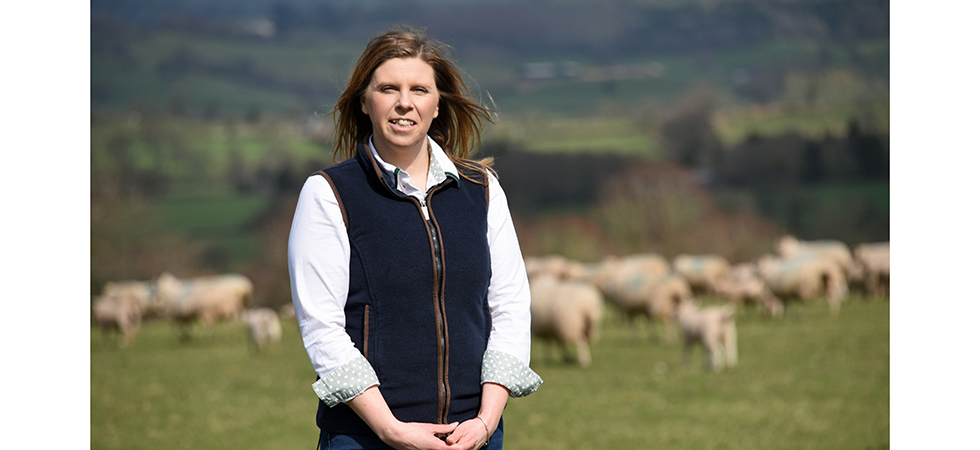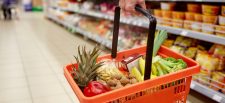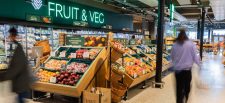In her New Year message, the chair of Hybu Cig Cymru – Meat Promotion Wales (HCC) Catherine Smith (pictured) said the unexpected events of the past 12 months have highlighted the need to support sustainable domestic food production in 2023 to help ensure food security.
Looking back at the start of 2022, she said that no-one had anticipated Russia’s invasion of Ukraine and the tragic war which ensued, as well as its profound impact on the global food sector and prices.
“Here in Wales, these are tough times for farmers and consumers alike due to the squeeze on the cost of living,” said Catherine Smith. “However our thoughts are also with the farmers and communities of Ukraine, who are suffering unimaginably.”
She added, “As well as the profound human cost, a war on the European continent has highlighted the fragility of global food systems; the loss of so much Ukrainian grain and other produce has had a serious impact far beyond its borders.
“It’s compelled us as a nation to look with fresh eyes at how we can ensure that consumers here can have a dependable supply of affordable, quality food, and how we need to support our farmers,” said Catherine.
The HCC Chair thanked British shoppers for their support, and highlighted HCC’s work in leading the Welsh red meat sector to produce even more efficiently and sustainably.
“All the evidence shows that consumers trust and support our farmers, and understand that we’re striving towards world-leading standards of quality, sustainability and traceability,” said Catherine Smith.
“We have the perfect landscape and climate to produce lamb and beef in the most environmentally-responsible way possible. We have a responsibility to our consumers both home and abroad and to global food security, to take the best advantage of this” explained Catherine.
“HCC’s priorities for 2023 will be to build on our ‘Welsh Way’ environmental blueprint by adding to the evidence base for our sustainable methods of production, both to help farmers and to explain our story to consumers.”
NFU’s message
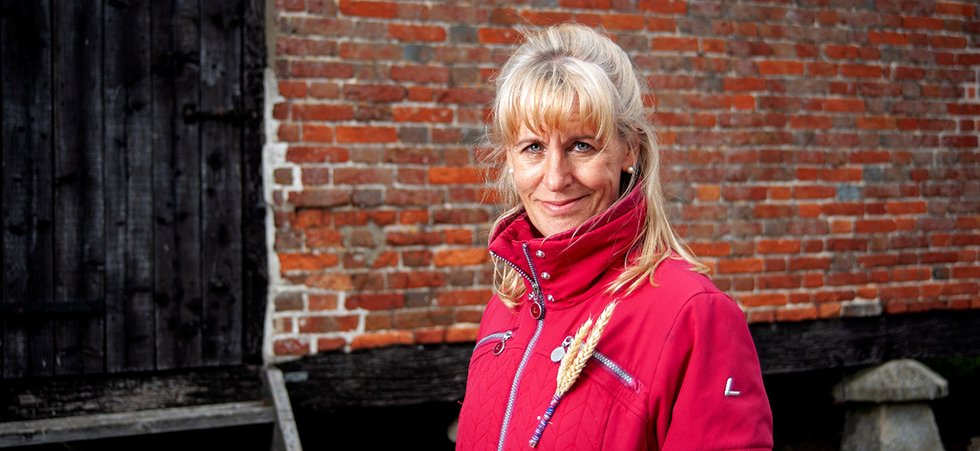
NFU president Minette Batters added: “When I wrote last year’s New Year’s Message, nobody could have predicted what we’ve witnessed in the past 12 months. From the war in Ukraine, which has created global turmoil and significantly disrupted food and energy supply chains, to our own political upheavals. On top of that we’ve had soaring input costs and the effects of climate change demonstrated by this year’s drought; the challenges faced by us all have been unprecedented.
“Clearly, events over the last year have made the job of producing food throughout the world so much harder. The importance of British farming to deliver food and energy has never been clearer. I never take for granted the huge public support farming receives and it is clear the nation continues to value our high food standards, produced to world-leading animal welfare and environmental protection, as well as our ability to produce renewable energy and contribute to the nation’s energy security.
“While it has been a challenging year, there have been a number of successes as a result of our campaigning over the past 12 months. We have seen an increase in the number of seasonal workers’ visas which will be a relief to farmers and growers employing the skilled workforce needed to produce fruit, vegetables and ornamentals next year. We have secured funding from government to level up rural communities through the Rural England Prosperity Fund, in addition to successfully recruiting eight new agri-food attachés overseas who will help drive exports of British food abroad. I was very pleased to be able to end the year with a meeting with the Prime Minister, Rishi Sunak, where I pressed, again, the importance of food security and home-grown food production. In the summer he made a commitment to monitor food self-sufficiency and I am reassured that he continues to take this issue very seriously.
“Looking to the year ahead, we have the opportunity to build on these successes and deliver more for the country. We have the ambition and drive to produce more renewable energy, enhance our environment, care for our countryside and work towards our commitment to reach net zero by 2040, all while producing sustainable food.
“To do this we need to ensure that we build profitability and resilience into our farm businesses to allow us to safeguard the nation’s food and energy security. It is vital that the government delivers the policies and investment needed to unlock a thriving food and farming sector.
“It was clear from my meeting with the Prime Minister that he has the same ambition as us for British food and farming. If we are to continue delivering for the nation, we need to see him honour his pledge made at the NFU Hustings event in August – to support British farming by setting a target for the nation’s food security, with a statutory duty to report on domestic food levels. And we need clarity on policies like the Environmental Land Management schemes, which will ensure we are able to plan financial resilience into our businesses and continue to produce climate-friendly food alongside green energy.
“2022 has been an extraordinary year. I am hopeful that 2023 will be the year that the government gets serious about British food and farming and that the government delivers the policies and support needed for us to thrive domestically and in markets around the world. The NFU will be focusing on these areas to build resilience and profitability back to British farming no matter what the next year brings.”
NFU Scotland perpsective
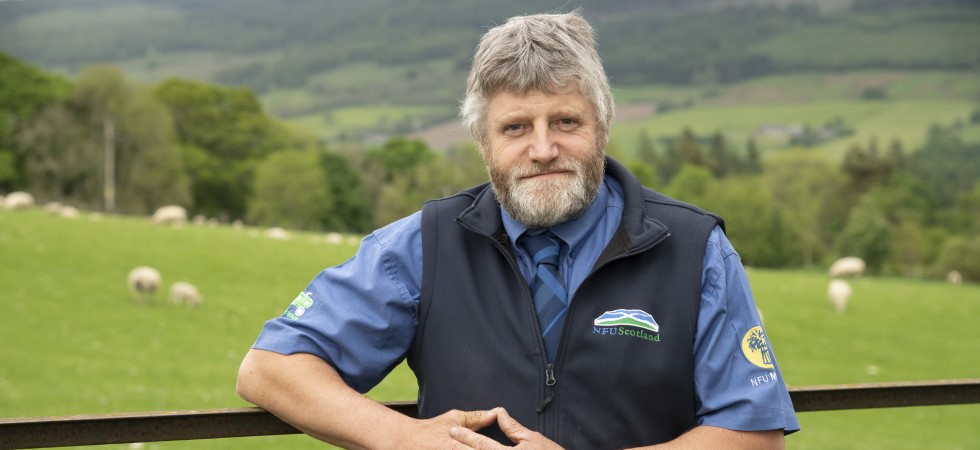
In his new year message NFU Scotland’s president Martin Kennedy echoed similar sentiments.
“After one of the most volatile years on record, defined by the dreadful conflict in Ukraine, unprecedented input price increases and unsustainable output prices, 2023 must see the nation reset its priorities.
“If we don’t refocus soon in terms of what’s important in life, then things will become unimaginably harder than what they are now.
“If we learned one lesson from 2023, it is that we took our eye off the ball with energy security and have relied on others to produce it for us because it’s cheaper.
“We must not repeat that with food.
“The saddest statistic I have seen yet is we spend the lowest amount of our income on food of any country in Europe. Worse still, on a global scale, we are third from the bottom only above Indonesia and Singapore.
“Even with the current increases on shop shelves and food inflation, we are still only spending, on average, 14 per cent of our income on food, and that’s up from about 9 per cent two years ago.
When you are taking something as vital as food security for granted, no wonder we waste so much of it as a nation.
“This long running decline in the amount of money we spend on food and drink and the inherent imbalance in the supply chain is the reason why we, as farmers and crofters, have had to develop, adapt, use economy of scale, and centralise everything just to keep afloat.
“The other startling statistic is that globally 44 per cent of people recognise locally produced food as being important. However, only 27 per cent in the UK think this is the case. Education is now required at all levels, and, in Scotland, the Good Food Nation Bill presents an opportunity in 2023 to ensure a commitment at all levels of public procurement to underpin that local food message.
“I’m not for one second saying we should turn back the clock. The innovation, technology, and animal welfare standards we now have are something to be incredibly proud of.
“What I am saying is that unless we start to recognise all of what local food delivers, then we will exacerbate the problem of climate change and biodiversity as no longer will we have the people on the land and a robust rural infrastructure to be part of the solution.
“The global population has now hit eight billion, an increase of one billion in only 11 years. Food security is now on the global agenda. The fact that we are sadly only 60% self-sufficient in food here in the UK is clearly significantly more than just an early warning of problems ahead.
“In the last few weeks, we have seen the rationing of eggs, not because of bird flu as the British Retail Consortium would have the public believe. It is because, despite repeated warnings early in 2022, retailers crippled our farmers because of poor returns. They didn’t listen but they must listen in 2023.
“Shortages are solely at the door of retailers and poor returns to our primary producers and unless that changes soon then being able to enjoy fantastic locally grown soft fruit and veg will be the next product to be rationed, alongside home-produced pork which has already declined by 20 per cent in the past year.
“This is also a rallying call to all our consumers who value our quality and standards of local food production in comparison to many imports. Imports may seem cheaper in the short term but, long term, walking out on domestic production will cause food inflation far greater than what we are seeing right now.”

